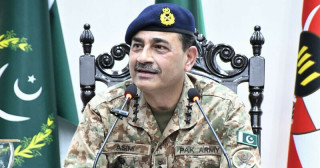
Leading credit rating agency Standard & Poor’s on Monday has affirmed B- and B rating on Pakistan’s long and short-term sovereign credit, respectively.
The agency retained its stable outlook on Pakistan’s economy in the long-term. S&P Global also affirmed their B- long-term issue rating on Pakistan’s senior unsecured debt and Sukuk trust certificates.
The American ratings agency estimated Pakistan’s requirement for foreign financing would stand fully covered for the next 12 months with inflows coming from multilateral and bilateral credit partners. More importantly, the amount of ‘usable’ foreign currency reserves rose to $14 billion at present compared to $2.4 billion two years ago in 2019.
The research noted, “the government’s securing of an IMF reform and funding program, along with considerable additional bilateral and multilateral funding, will help to address near-term funding risks. Nevertheless, continued reform progress will likely be necessary to address Pakistan’s credit vulnerabilities.”
https://twitter.com/x/status/1432318392623587330
“As of April 2021, the government had completed most of the 12 structural benchmarks expected under the programme up to that point. The IMF subsequently completed its second through fifth reviews under the EFF. In particular, Pakistan has made solid progress toward containing its twin current account and primary fiscal deficits, has begun to rebuild its foreign exchange reserves alongside a more flexible rupee exchange rate regime, and consolidated the State Bank of Pakistan (SBP)’s autonomy by implementing zero lending from the central bank.”, the agency said.
It added, “Ongoing reform efforts should support a continued stabilisation of Pakistan’s fiscal and external metrics, though vulnerabilities remain elevated. “Multilateral and official funding will remain critical to Pakistan’s external debt sustainability.”
It added that the stable outlook reflects our expectations that funding from key bilateral and multilateral partners, along with the recent improvement in Pakistan’s balance-of-payments position, will be sufficient for the country to meet its considerable external obligations over the next 12 months.
“We expect Pakistan’s recent improvement in growth momentum to endure, bringing its long-term performance more in line with global peers.” S&P said, adding that the government has adopted key reforms to stabilize its vulnerable fiscal position, however pandemic risks and political realities may temper further progress.
“Nevertheless, the government has begun to implement more powerful economic reform measures, in line with its agreement to a $6 billion, 39-month extended funding facility with the IMF,” credit-rating agency said earlier, which includes fiscal reforms aimed at increasing the government’s revenue mobilisation, as well as the introduction of and commitment to a more flexible, market-determined exchange rate regime.
S&P Ratings said that despite economic reforms, including the introduction of enhanced flexibility for the Pakistani rupee, will help to stabilize and eventually support a recovery in economic activity, this effect is unlikely to sufficiently offset the loss in momentum in the economy during this period of acute fiscal and external stress.
Talking about the recent regional crisis, the agency said, “The humanitarian and security crisis in neighboring Afghanistan could pose additional risks to Pakistan’s domestic security situation in the years ahead.” S&P said domestic security, occasional tensions with India, and Pakistan’s extended land border with neighboring Afghanistan pose challenges to Pakistan’s long-term economic outlook.
It added, “these conditions, along with a shortfall in physical infrastructure, are additional bottlenecks to foreign direct investment.”
The agency said rising revenues will help to gradually moderate the government’s elevated interest burden. The Pakistan government has taken steps to bolster its revenue profile in line with the IMF’s EFF reform program.
However, there was concern by the agency that the new revenue generation measures in recent budget are very limited and additional steps need to be taken to comply with IMF’s EEF program.
“Nevertheless, the government introduced limited new revenue generation measures in this year’s budget, and additional reforms to tariff and tax regimes may be necessary in order to maintain EFF program momentum.”
Lastly, the rating agency forecasted that they do not see the deficit rising toward its 2018 level, and instead forecast that it will remain modestly below 3 percent of GDP.
Source


























